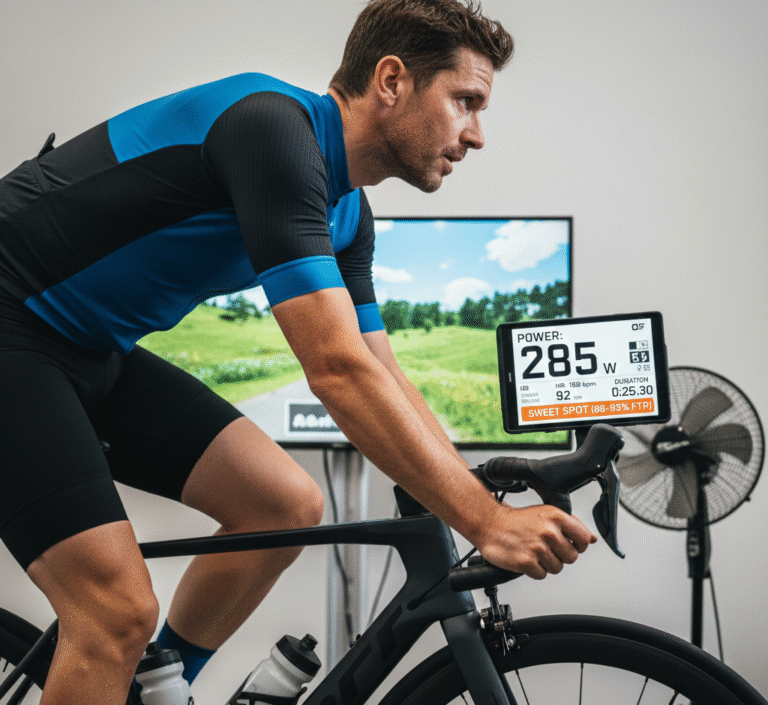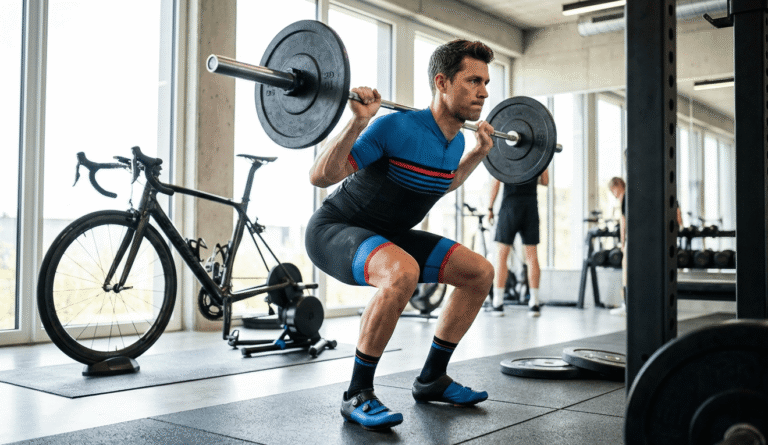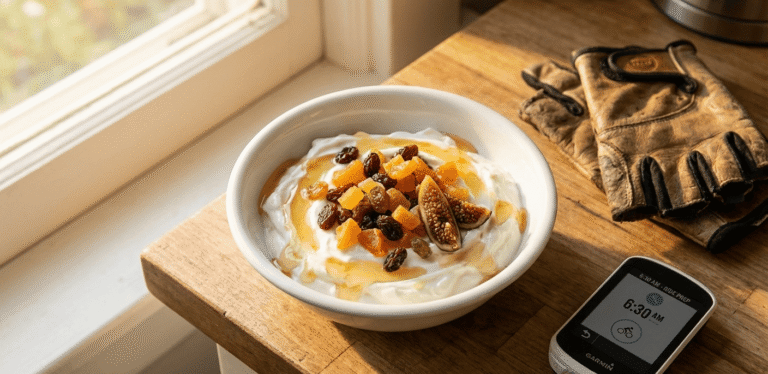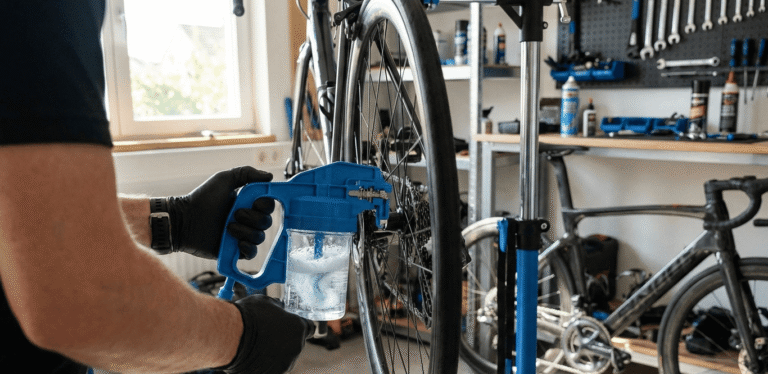The Best Fluffy Pancakes recipe you will fall in love with. Full of tips and tricks to help you make the best pancakes.
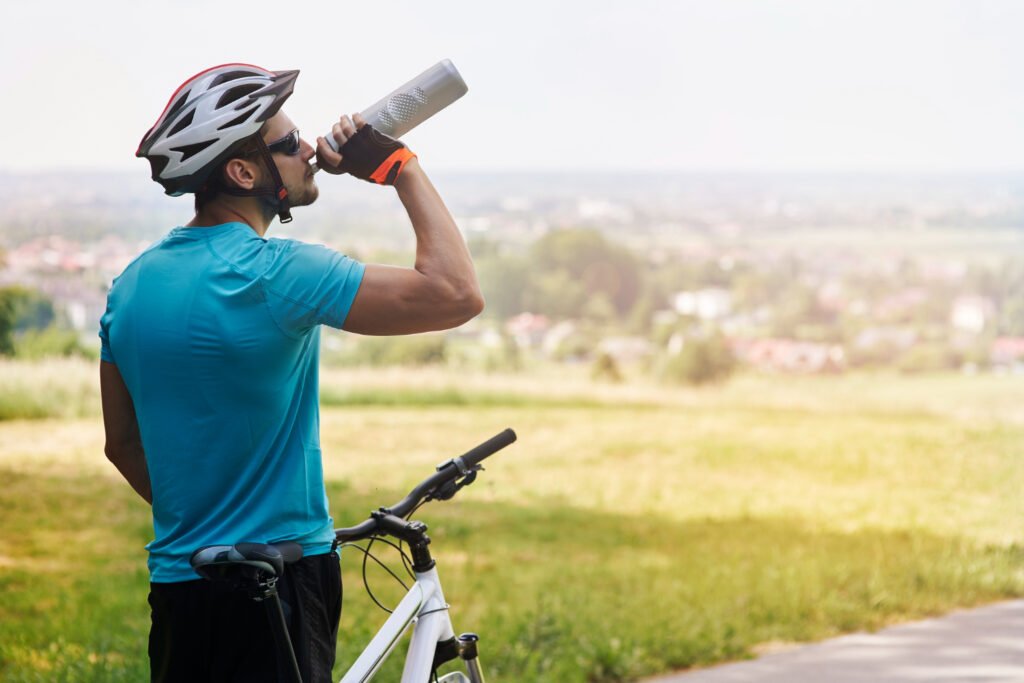
Long-distance road cycling success depends on more than training alone — nutrition is the true fuel behind endurance and performance. From pre-ride carb loading to mid-ride energy gels and strategic post-ride recovery meals, nutrition determines whether you thrive on the bike or hit the dreaded “bonk.”
In this guide, we’ll break down cycling nutrition strategies for every stage of your ride: fueling before, during, and after. You’ll also learn advanced tips like caffeine timing, electrolyte balance, and personalized fueling plans. Whether you’re training for your first century ride or fine-tuning your race-day performance, smart nutrition will help you ride longer, stronger, and recover faster.
Pre-Ride Fueling: Building Energy Reserves for Road Cycling Success
Proper pre-ride nutrition forms the foundation of successful long-distance road cycling performance and endurance capabilities. Carbohydrate loading the night before cycling helps maximize glycogen stores in muscles and liver. Strategic pre-ride breakfast timing prevents digestive issues while ensuring adequate energy for challenging road cycling adventures. Hydration preparation sets the stage for optimal cycling performance throughout extended riding sessions.
Essential pre-ride road cycling nutrition strategies:
- Carb loading: Complex carbohydrates like pasta, rice, or potatoes for cycling energy storage
- Breakfast timing: Eat 2-3 hours before cycling to allow proper digestion
- Low-fat foods: Oatmeal, toast, and bananas prevent cycling stomach distress
- Hydration preparation: 500-750ml of fluids before starting cycling adventures
- Familiar foods: Stick to tested nutrition that works for your cycling system
Smart pre-ride nutrition preparation ensures sustained energy throughout challenging long-distance road cycling sessions.
During-Ride Fueling: Maintaining Energy for Extended Cycling Performance
Consistent fueling during road cycling prevents the dreaded bonk and maintains steady power output throughout long rides. Consuming 30-60 grams of carbohydrates per hour supports cycling endurance for rides under three hours. Extended cycling sessions requiring 90+ grams hourly benefit from mixed glucose and fructose sources for optimal absorption. Regular hydration and electrolyte replacement prevent cycling performance decline from dehydration and cramping.
| Ride Duration | Carb Intake | Cycling Fuel Options |
| 1-3 hours | 30-60g/hour | Energy gels, bananas, sports drinks |
| 3+ hours | 60-90g/hour | Mixed fuel sources, real food options |
Key during-ride cycling nutrition tactics:
- Hourly carb targets: 30-90g depending on cycling duration and intensity
- Hydration goals: 500-750ml per hour of cycling in various conditions
- Electrolyte balance: Sodium replacement prevents cycling-related muscle cramping
- Small frequent intake: Better absorption than large cycling nutrition doses
Consistent fueling transforms long road cycling challenges into sustainable and enjoyable endurance experiences.
Post-Ride Recovery: Optimizing Cycling Adaptation and Muscle Repair
Immediate post-cycling nutrition maximizes recovery benefits and prepares your body for future road cycling training. The golden recovery window within 30-60 minutes after cycling optimizes glycogen replenishment and muscle repair. A 3:1 carbohydrate-to-protein ratio provides ideal nutrition for cycling recovery and adaptation processes. Strategic hydration replacement ensures complete recovery from cycling-induced fluid and electrolyte losses.
Critical post-cycling recovery nutrition elements:
- Recovery window: Consume nutrients within 60 minutes of finishing cycling sessions
- Carb-protein ratio: 3:1 ratio optimizes cycling recovery and muscle adaptation
- Hydration assessment: Pale yellow urine indicates proper cycling recovery hydration
- Complete meals: Balanced nutrition 1-2 hours after cycling supports full recovery
- Electrolyte replacement: Heavy cycling sweat losses require sodium and mineral replenishment
Proper recovery nutrition transforms cycling stress into strength gains and improved endurance performance.
Strategic Cycling Nutrition: Advanced Fueling Techniques for Road Cyclists
Advanced nutrition strategies separate successful long-distance cyclists from those who struggle with energy management. Testing all cycling nutrition during training prevents race-day digestive disasters and performance failures. Small, frequent nutrition intake prevents cycling stomach distress while maintaining steady energy supply. Strategic caffeine timing enhances cycling performance without causing energy crashes or digestive issues.
Pro-level cycling nutrition optimization tactics:
- Training testing: Practice all cycling nutrition strategies during training rides
- Portion control: Small frequent bites prevent cycling-related stomach problems
- Caffeine strategy: Moderate doses enhance cycling performance when timed properly
- Individual customization: Tailor cycling nutrition to personal digestion and preferences
- Environmental adaptation: Adjust cycling nutrition for temperature and humidity conditions
Mastering advanced nutrition strategies enables consistent performance during challenging long-distance road cycling adventures.
Comprehensive Cycling Nutrition Planning and Implementation
Successful cycling nutrition requires systematic planning, testing, and adaptation to individual needs and cycling demands. Different cycling intensities, durations, and environmental conditions demand flexible nutrition approaches and strategies. Smart cyclists develop personalized nutrition protocols through experimentation during training rather than racing situations. Proper planning ensures cycling adventures remain enjoyable rather than becoming survival ordeals.
| Nutrition Phase | Cycling Focus | Key Actions |
| Pre-ride | Energy preparation | Carb loading, hydration, timing |
| During ride | Energy maintenance | Consistent fueling, electrolyte balance |
| Post-ride | Recovery optimization | Quick nutrition, hydration restoration |
Comprehensive cycling nutrition success factors:
- Personal adaptation: Develop cycling nutrition protocols through systematic testing
- Flexible approach: Adjust nutrition strategies for varying cycling conditions
- Consistent application: Apply proven cycling nutrition consistently across all rides
- Recovery priority: Emphasize post-cycling nutrition for training adaptation benefits
Mastering cycling nutrition transforms long road rides from endurance challenges into sustainable cycling adventures.
Summary
Cycling nutrition strategies for long road rides:
- Pre-ride fueling – Carb loading, hydration, and low-fat, easy-to-digest meals
- During-ride fueling – 30–90g of carbs/hour plus steady hydration and electrolytes
- Post-ride recovery – 3:1 carb-to-protein meals within 60 minutes after finishing
- Advanced tactics – Test nutrition in training, use caffeine strategically, and adapt for conditions
- Comprehensive planning – Flexible fueling based on ride length, intensity, and environment
👉 Mastering these strategies ensures endurance, performance, and consistent recovery across every long road cycling adventure.
For a complete breakdown of road cycling training, gear, and performance, see our Road Cycling Guide.


